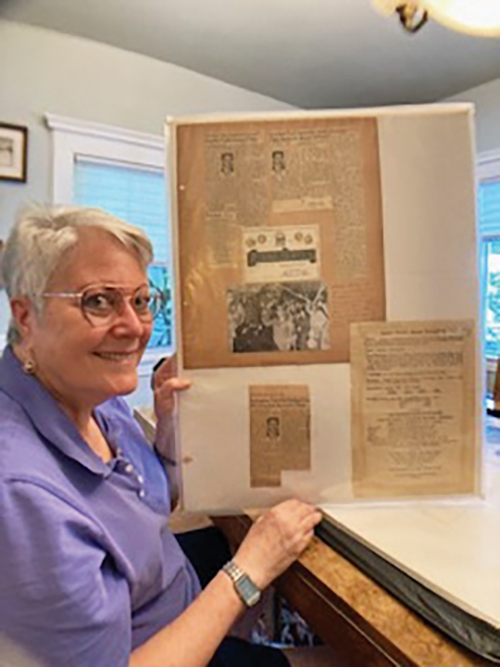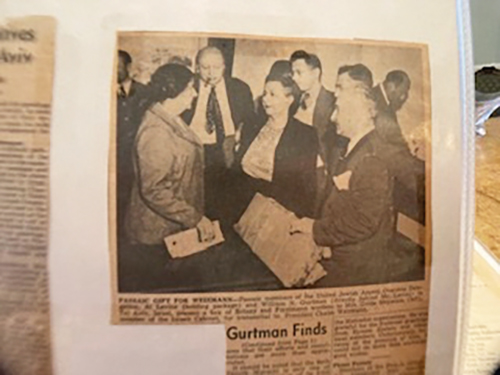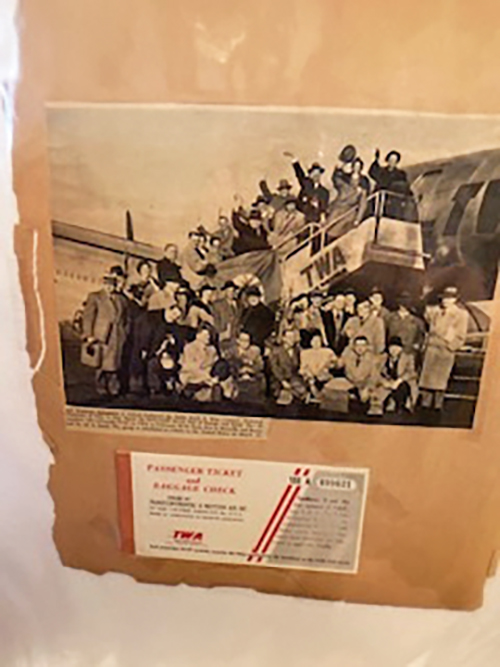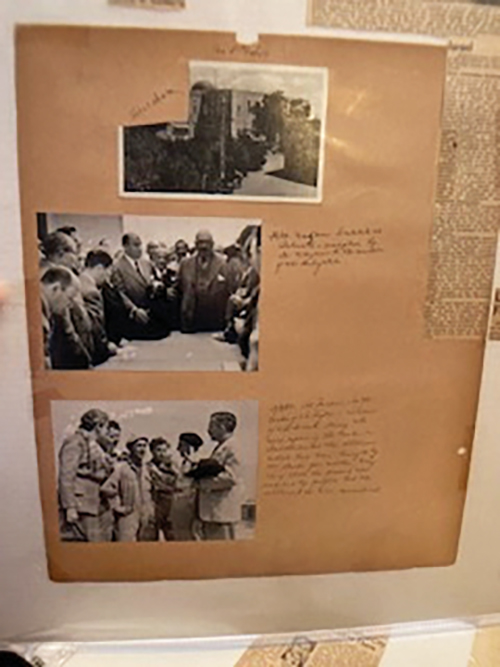
Sometimes we hear of what seems like an obscure reference to a name, or we come across a name or names in a place or situation where we are so focused on what’s happening around us that we lose sight of the people who actually made the situation happen or brought the occasion to fruition.
For example, many of us are familiar with the Jewish Memorial Chapel in Clifton, but perhaps not familiar with those who were instrumental in securing its presence and future in the Passaic-Clifton community.
One of those visionaries was Jane Grubin’s great uncle, Bill Gurtman, a prominent attorney who had also served as founder and president of the local Jewish Community Council, starting in 1943.
Jane, a resident of Passaic, spoke to The Jewish Link and shared some of her family’s many contributions to the Passaic-Clifton community.
Although the Jewish Memorial Chapel has a history spanning 101 years, Jane said that in 1949, “the Council was unhappy with its reliance on a non-Jewish undertaker.”
With her great uncle’s legal input, said Jane, Passaic became “the country’s first municipality to have a funeral chapel operating on a nonprofit basis by an organization of community leaders for the benefit of the community.” In 1962 Bill served as the chapel’s chairman of the board, and raised funds to purchase land for the chapel. “The building was designed by my father, Nathan Gurtman,” Jane added. “After the passing of Ida and Bill Gurtman, whose benevolence endowed the chapel, it moved to Allwood Road in Clifton,” its current location.

Bill Gurtman had also been a reporter for the Passaic Daily News starting in 1920, while attending law school. He continued to contribute news stories long after he became a practicing attorney, including during his trips to post-war Europe and to the infant country of Israel. As one of a large UJA delegation, he presented gifts to then President Dr. Chaim Weizmann through the hand of then Knesset member Golda Meyerson … Sound familiar?
Jane further related that her great uncle’s involvement was not limited to Jewish interests in Passaic. He also served on the Board of Education, the city council, as counsel for the parking authority and as special counsel for the Passaic Housing Authority. Additionally, Bill possessed l volunteer and philanthropic credentials that really speak to his largess and his efforts to help others locally, nationally and globally. He was the recipient of numerous awards of appreciation and recognition for his service to many local organizations.
However, Bill was not alone in his altruistic efforts. Jane’s great aunt played a significant role as well in Passaic community affairs. “Ida Gurtman served as general chair of the women’s division of the United Jewish Campaign of Passaic, Clifton and vicinity. She was also vice president of the Passaic Council of Jewish Women and a delegate at large on the Board of Delegates of the Jewish Community Council; treasurer of the Guidance Guild Nursery School, and a member of the Home Service Volunteer Corps of the Passaic chapter of the American Red Cross,” Jane shared. Ida was also instrumental in the formation of the Mental Health Clinic of Passaic. She endowed the Gurtman Therapeutic Preschool, at what is now the Mental Health Center of Passaic, thus establishing her own, independent philanthropic resume.

Amazingly, explained Jane, “Following the Second World War, the Gurtmans traveled to Europe to visit displaced persons camps and coordinate funding for Holocaust survivors. Many later came to the Passaic Hebrew Free Sheltering Home, where they were cared for and eventually … set up to live independently.” She conveyed a lesser known fact: The Jewish community of Passaic was reportedly the third-largest donor to the DP camps and towards the establishment of the State of Israel, “… only behind New York City and Los Angeles,” said Jane, adding, “Golda Meir visited us here to thank us.”
Jane is currently the only remaining member of the Gurtman family residing in Passaic. She humbly summed up Bill and Ida’s contributions: “These two weren’t just people of means; they were people of action,” a legacy that endures in many institutions still in operation in the Passaic community today.











